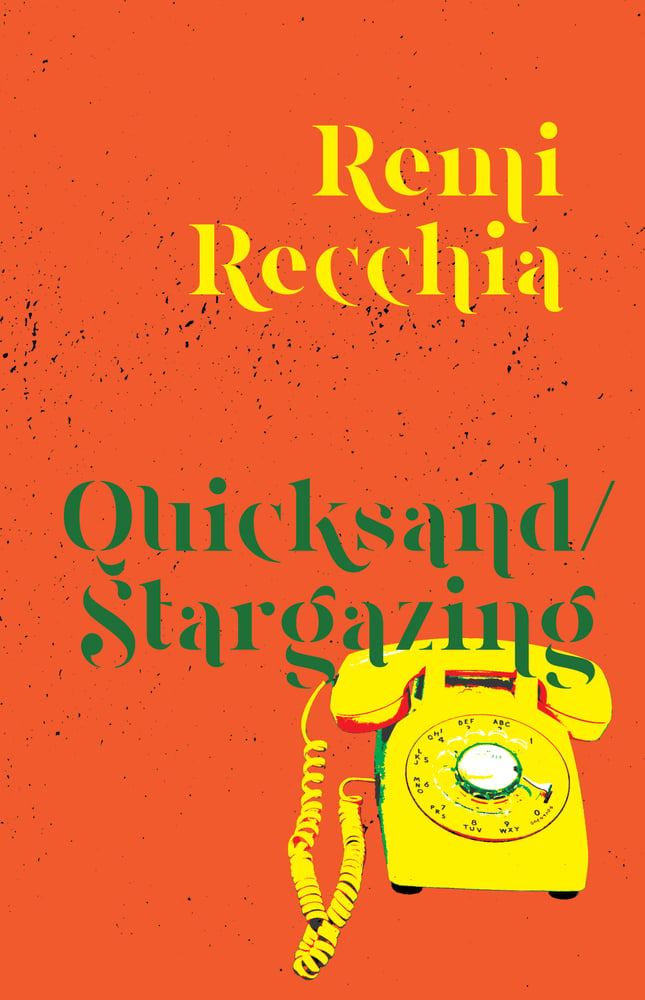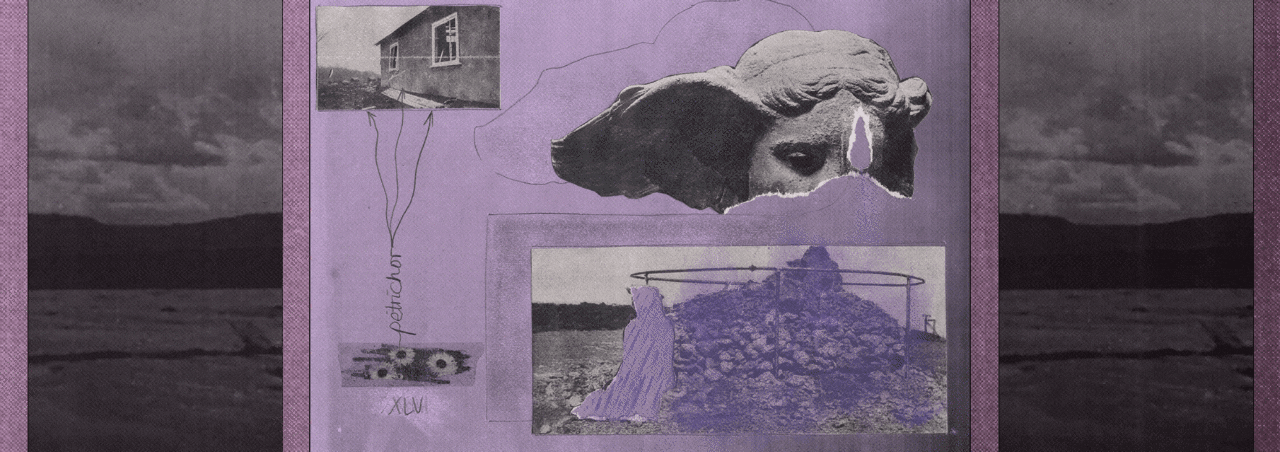
Cooper Dillon Books, 2021
Quicksand/Stargazing is the inaugural book by the poet Remi Recchia, which immediately showcases the poet’s maturity, craft, and vision. This is a book full of bodies, both living and dead, both animal and human. In a poem like “When the otter drowned at Binder Park Zoo,” the reader does not see the otter die, but we are brought into the fullness of the grief at the animal’s death. The poet writes, “Maybe otters are never as happy/as they seem” and suddenly an otter frolicking in the sunlight has an ominous cloud flitting at the edges, what we thought to be inherently true has been brought into question.
The way both animal bodies and human bodies are stuffed with secrets is not new to poetry, but Remi gently brings these secrets to the surface; however, the poet does not settle on that easy digging but goes further into the lives of otters, mothers, lovers, the self. This unsettling comes off casually, mostly through the tone of these poems, which can lead the reader to a sudden turn they did not expect. What can one say about a poem that surprises? It leads to new appreciations, and it allows the reader to engage in one of the best parts of reading poetry, which is rereading poems with a new appreciation for the images and themes.
Bodies are also rife with change in this book: the cutting of a wife’s hair leads the speaker to not recognize them in “When My Wife Cuts Her Hair & I Forget What to Say”, or the constant change signaled through the small detail of empty syringes in “Self-portrait as ghost”. The speaker in these poems is patient, they understand that life is full of transitionary periods, and that change is a process of gaining some things while leaving others behind, exemplified in lines like “I sometimes forget to smile at my friends/& lovers. I assume they are already in my head” from the aforementioned “When My Wife Cuts Her Hair & I Forget What to Say”. In a poem like “Waking Up from Top Surgery in a Sparse Airbnb Living Room”, the change is stark. “My breasts are gone” is the first line, and the reader understands where the poem is going; nevertheless, the poem surprises with its final cleansing image, an unsaid shaking off of the grave clothes.
Quicksand/Stargazing also sees the joy in change, exemplified in poems of the body, but also in poems of place like “The Ostriches Bathe in Tulsa, Oklahoma”. This poem paints a picture of the ostriches as graceful, quiet animals, but the speaker is anything but quiet with their thoughts moving from feathers to love to the heat that envelopes both animals and humans. The book ends with a long poem entitled “Family Histories” which begins with the startling lines, “My grandmother is maybe from Pennsylvania/I don’t know if Marcus was raped”. This poem moves across the page, dramatizing the change into the form, and it ends in one final transformation. Quicksand/Stargazing by Remi Recchia is one of the best debut poetry books to come out this year, and it should be a book that readers find and devour and, after some time, to return to anew to see how it changes.
~ Caleb Jordan
